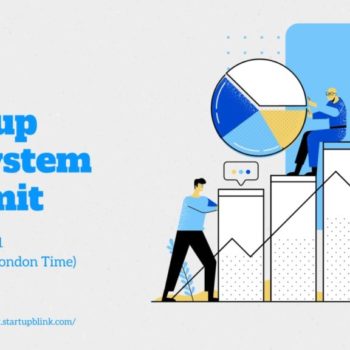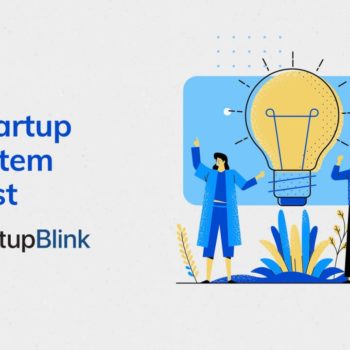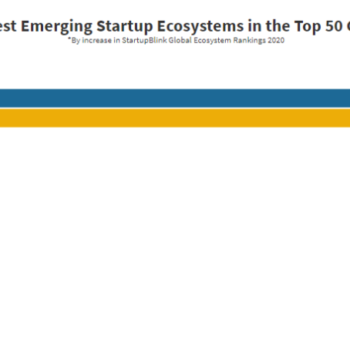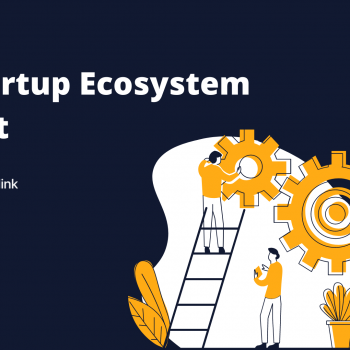Growing a successful startup ecosystem with a smaller population requires tackling challenges such as limited market size, smaller talent and investor pool, but these cities also have many unique advantages. Canadian City, Kingston with its population of less than 500,000 inhabitants is an inspiring example, showcasing how these challenges can be tackled to put your city into the top 15% of 1,310 startup ecosystems.
In this episode of the Startup Ecosystem Podcast, our host, Plamen Ivanov interviews Norman Musengimana, Business Development Manager at Kingston Economic Development in Ontario, Canada to learn from their experiences in building such a startup ecosystem.
Tune into the episode now to explore Kingston’s journey on building a startup ecosystem and learn strategies for smaller cities aiming to strengthen their startup ecosystems. If you’re interested in Kingston’s startup ecosystem, check it out here.
Get a head’s up on our next podcast episode — Subscribe on Apple Podcast, or Spotify!
Drawing from Kingston’s story, here are key strategies for building a startup ecosystem in smaller cities:
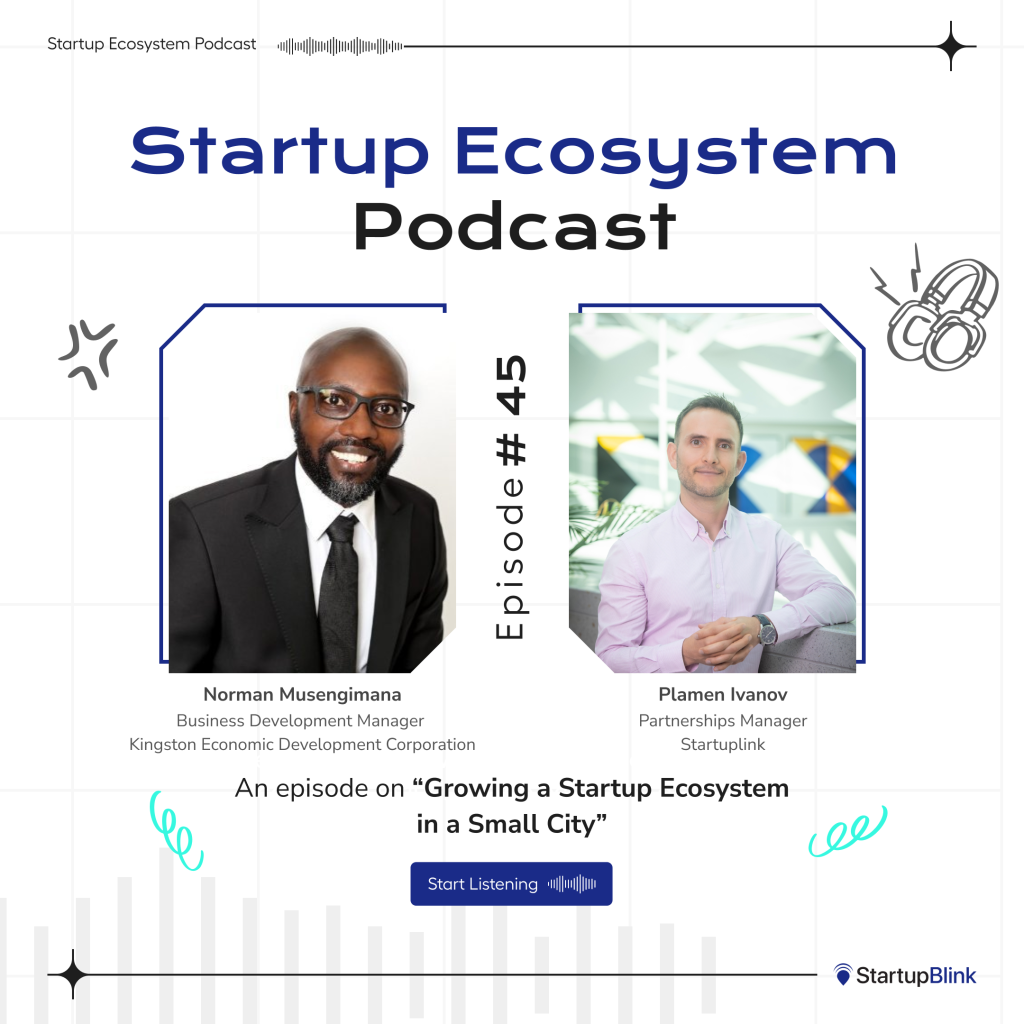
1. Building Partnerships with Local Stakeholders
Building a successful startup ecosystem in a small city relies on strong partnerships with local stakeholders. These partnerships can be categorized into two primary types.
A. Academic Partnerships
For smaller cities, collaborating with academic institutions is very important. Universities and colleges can provide research expertise, talented individuals, and innovative ideas that can help the ecosystem grow. As revealed by Norman during the interview, Kingston leverages the capabilities of Queen’s University and its research centers to support startups in sustainable manufacturing.
B. Industry Partnerships
Apart from partnering with academic institutions, partnering with industry organizations ensures that startups have access to practical resources and mentorship. Kingston leverages its small but connected community to build partnerships with industry organizations such as GreenCentre Canada and Kingston Process Metallurgy that have created a support infrastructure for startups, including access to cutting-edge facilities.
2. Develop Tailored Support Programs
Startups in smaller cities often require support systems to overcome challenges like limited resources and market access mentioned earlier. These programs ensure startups have the right resources to succeed and revert the challenges of being in a small city.

A. Specialized Facilities
Specialized facilities such as coworking spaces, incubators, tech labs and startup studios help startups overcome early-stage barriers. Kingston has unique examples of providing specialized facilities to its entrepreneurs. For instance, Reaction Hub in Kingston addresses the “valley of death” , a critical phase in a startup’s journey where companies face significant challenges in moving from research and development to commercialization, for startups in the chemical technology space. By offering startups access to prototyping, techno-economic analysis, and pilot plant services, Reaction Hub ensures they can transition smoothly from concept to commercialization.
B. Funding Opportunities
In early stages, startups seek funding to grow faster, cover operating costs, invest in technology, and build teams before they become profitable. This phase often includes seeking out various funding sources, such as grants, venture capital, angel investors, or government programs. In Kingston, the city successfully secured federal funding to support innovative projects, ensuring the local startups can find the financial support they need in the city, on top of the previous non-monetary support mentioned.
3. Collaboration Across the Ecosystem
In smaller cities, the proximity of stakeholders creates a unique opportunity for collaboration. The close proximity can create opportunities for a better alignment between startups, academia, and local government.
A. Networking Opportunities
Networking opportunities available in an ecosystem enables knowledge exchange, partnerships and mentorship between different stakeholders that is much needed in the early-stages of setting up a startup. Kingston creates this environment with its integrated economic strategy that ensures regular communication among universities, research centers, and business leaders. During the interview, as an example, Norman shares that Queen’s University runs one of the most successful pitch competitions in the ecosystem. It has a significant budget, and the event attracts startups from across the region. These competitions are critical because they provide startups with exposure, funding, and the opportunity to connect with investors and mentors.
B. Empathy-Driven Culture
Mindsets in a culture heavily affects its startup ecosystem, and it is a long process to change it. If society is supportive of entrepreneurs and encourages risk taking, the psychology of people would be much better to build their own startup, by encouraging people to take risks, share new ideas, and learn from failure without fear of judgment. During the interview, Norman touches on the point of creating an open-door policy where entrepreneurs feel heard and supported and as Kingston Economic Development Corporation, they ensure entrepreneurs have a go-to place when they need support.
4. Leverage Quality of Life as a Selling Point
Cities with smaller populations can leverage the benefits of their size for the work-life balance. One advantage is shorter commute time to commute, as it is also revealed in the interview. Norman contrasts Kingston’s short commute times with his experience in London, where commuting was a significant time drain. In larger cities, long commutes can drain productivity. Kingston’s efficient transportation system allows residents to save hours every day. Small cities can promote their accessibility and convenience as key benefits for entrepreneurs seeking work-life balance.
A. Work-Life Balance
The decision to relocate often goes beyond business considerations, touching on the quality of life offered by the prospective city. Vienna’s reputation for high living standards serves as a benchmark for cities worldwide. Enhancing aspects such as affordable housing, efficient transportation, and access to cultural and recreational activities can make your city a preferred destination for startups and their employees.
B. Lifestyle Benefits
The city’s natural beauty, recreational opportunities, and livability are major draws. From waterfront views to cycling trails and cultural activities, Kingston’s lifestyle offerings make it an attractive place to live and work. Potentially, such characteristics of a city can be a unique selling point for the ecosystem and should be the integral part of the promotional efforts targeting entrepreneurs and talent.
5. Benefits to the Economy
A strong startup ecosystem brings real, lasting benefits to the local economy. It creates new jobs ,reverts brain drain and gives people more opportunities to work and grow locally, while also attracting outside investments.
A. Job Creation and Economic Growth
Startups in smaller cities play a significant role in creating and retaining high-quality jobs, and Kingston is no exception. Our integrated economic development strategy focuses on two key sectors: sustainable manufacturing and life sciences.
In sustainable manufacturing, Kingston has built an impressive ecosystem. Local companies like KPM-Accelerate, which operates a cutting-edge Chem-Tech Accelerator, are helping to position Kingston as a global Chem-Tech hub. Startups like Cyclic Materials, Ucore, and Green Graphite are driving innovation in this space, while established companies such as DuPont’s Kingston Technology Centre, and Celanese center of excellence for polymerization, Novelis, and Invista provide a solid industrial foundation. Kingston has also attracted foreign direct investments (FDI), with companies like Frulact, Canada Royal Milk, and Umicore choosing the region for their operations.
In the life sciences sector, Kingston continues to shine. Startups like OPT Health, mDETECT, Orange Neuroscience, and Spectra Plasmonics are making waves, while local companies such as Elentra, Octane, Novari Health, and Hass Motion are creating incredible job opportunities. The region has also welcomed FDI, with global leaders like Lonza contributing to economic growth and job creation.
Together, these efforts are fueling Kingston’s growth and establishing it as a hub for innovation and economic development.
B. Developing Expertise
Industry leadership often comes down to leveraging unique local strengths, and Kingston is a great example of this. With over 80 years of expertise in chemical technologies, as highlighted by Norman during an interview, Kingston has created an environment ripe for innovation and growth.
This success wouldn’t be possible without the contributions of our academic institutions. Queen’s University, with its world-class research centers and facilities, St. Lawrence College, and the Royal Military College of Canada all play crucial roles in building the knowledge base and providing the expertise that drives Kingston’s industries.
For example, in the field of sustainable manufacturing, these institutions collaborate closely with facilities like KPM-Accelerate, Green Center Canada, and RXN Hub. Together, they create a robust ecosystem that supports startups, attracts local companies, and brings in foreign direct investments. These collaborations are critical to Kingston’s growing reputation as a global Chem-Tech hub.
This combination of expertise and collaboration doesn’t just support startups. It also fosters an attractive ecosystem where local businesses and internationally scaling businesses thrive, reinforcing Kingston’s position as a leader in selected industries like sustainable manufacturing and as we have seen often, in sub sectors such as energy & environment.
Sum Up,
Building a startup ecosystem in a small city requires intentionality, collaboration, a focus on unique strengths, and continually making provision for learning so that the ecosystem can evolve with the changing needs and demands of startups. Kingston’s success story demonstrates that being a small city is not a barrier to grow a startup ecosystem and it even has some inherent advantages such as leveraging its resources much more effectively, fostering partnerships faster, and creating a supportive environment for startups with out-of-the box ideas
If you’re interested in learning more about Kingston’s journey or exploring strategies for your own city, listen to the full podcast episode.



